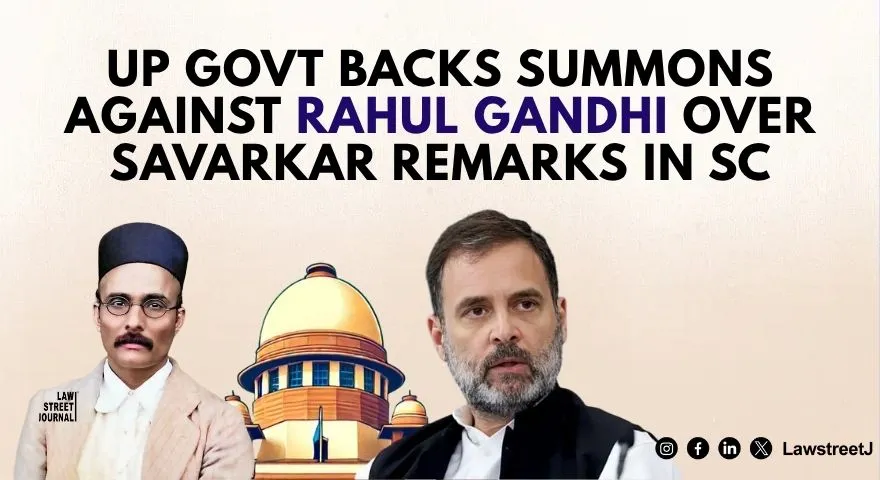NEW DELHI: The Uttar Pradesh government has opposed before the Supreme Court a plea by Congress leader Rahul Gandhi against a summons issued by a Lucknow court for his controversial remarks against 'Veer' Savarkar during 'Bharat Jodo' in 2022.
It said, "The allegations, supported by investigation, indicated deliberate spreading of hatred through pre-planned actions, falling within the ambit of offences".
In an affidavit, the Yogi Adityanath government said the summoning order in the case followed thorough re-examination of the case file, statements, and investigation report, all supporting the allegations made against Rahul Gandhi.
"The Magistrate properly applied judicial mind to facts and evidence, determining a prima facie case under Sections 153-A and 505 IPC," it said.
The affidavit also stated that the inherent powers of the High Court under Section 482 of the Criminal Procedure Code should not be invoked when a statutory remedy under Section 397/399 of the law already existed with the petitioner.
The state claimed the High Court's order, declining any relief to Rahul Gandhi was "justified and legal".
"The interference of this court is not warranted in the matter," it said.
On April 25, 2025, the Supreme Court had stayed the trial court's order issuing summon against Rahul Gandhi but asked him to refrain from making further derogatory remarks against the freedom fighters.
"Let's be clear, any further statement and we will take suo moto and no question of sanction. We will not allow you to speak anything about the freedom fighters. They have given us freedom," the bench had warned him.
The criminal proceedings were initiated after the lawyer had filed the complaint in December, 2024 in the Lucknow court.
During his Bharat Jodo Yatra at a rally in Maharashtra's Akola district, on November 17, 2022, Gandhi had allegedly commented that Vinayak Damodar Savarkar was a British servant who received a pension.
The Lucknow bench of the Allahabad High Court had on April 4, 2025 refused to entertain Gandhi’s plea after observing that he has the option to approach the sessions judge with a plea under Section 397 (power to revise trial court’s order) of the Code of Criminal Procedure.

















